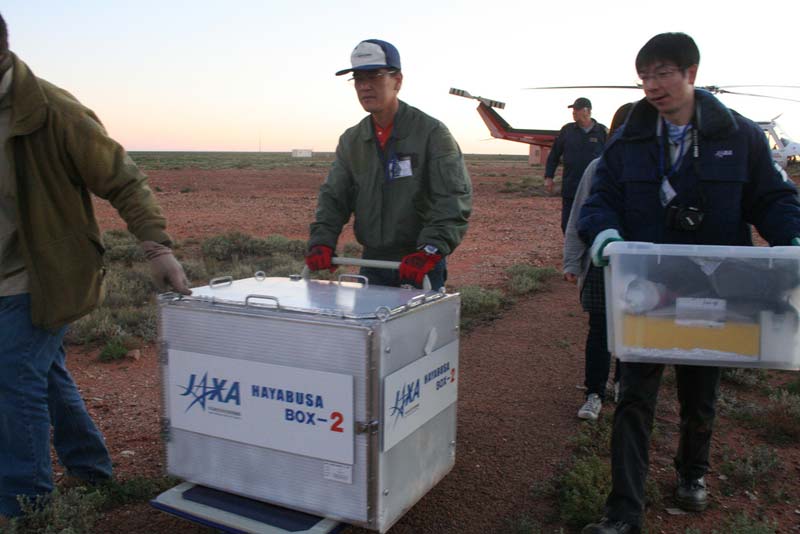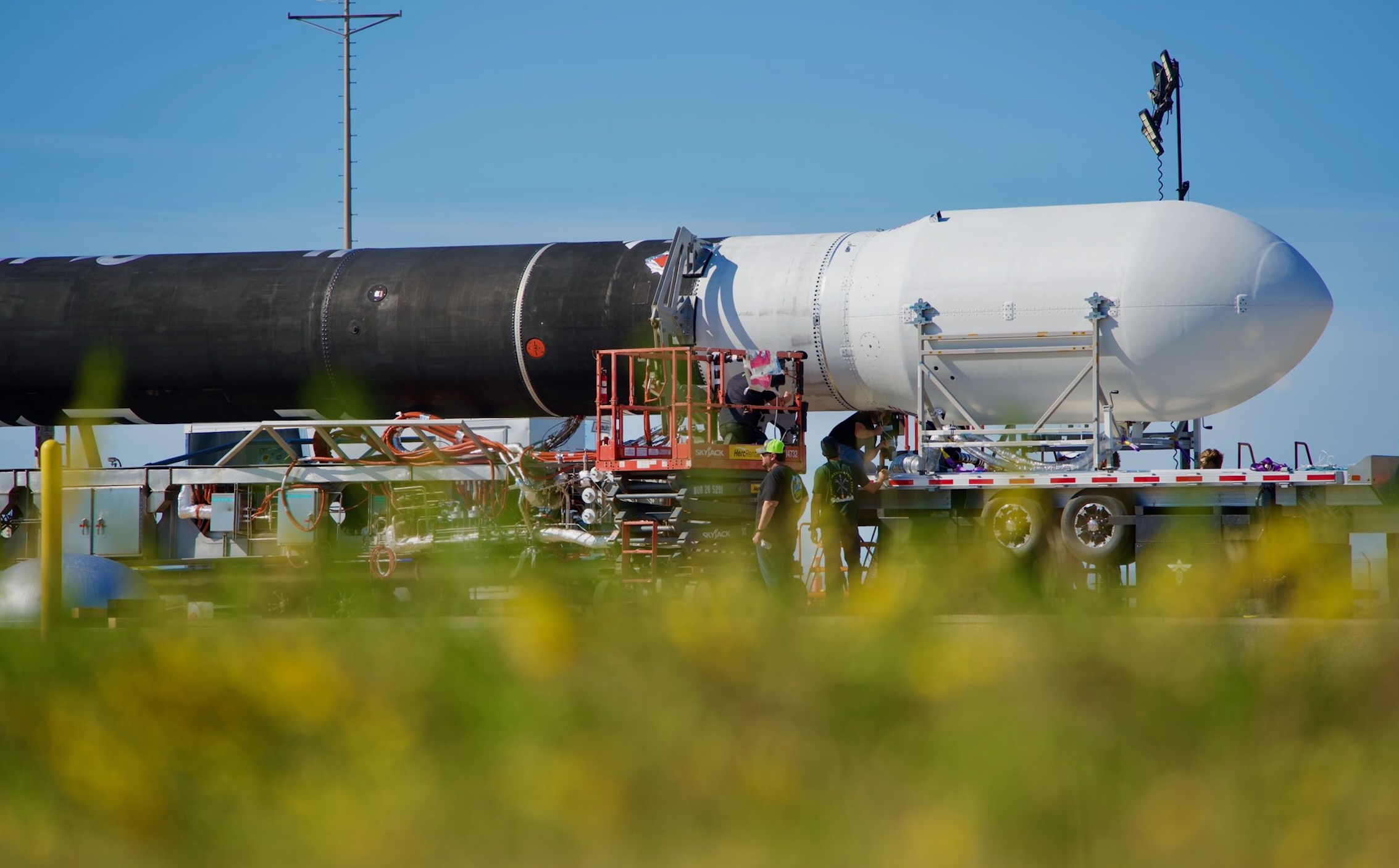Space Capsule That Visited Asteroid Heads to Japan

Breaking space news, the latest updates on rocket launches, skywatching events and more!
You are now subscribed
Your newsletter sign-up was successful
Want to add more newsletters?
A space capsule that may contain the first-ever samplesfrom an asteroid in deep space has begun one last trek from itsAustralia landing site to Japan ? its final destination after abillion-mile voyage.
The capsule, which parachutedback to Earth Sunday in the Australian outback, is all that remains ofJapan's seven-year Hayabusa mission that visited the asteroid Itokawa.The basketball-sized capsule is being flown to Japan for its long-awaitedopening to see, once and for all, if it actually grabbed samples of anasteroid.
"JAXA has commenced to transport the retrievedcapsule to Japan," the Japan Aerospace Exploration Agency (JAXA) said in astatement.
The capsule is expected to arrive at JAXA facility inSagahimara, Japan, on Friday for a grand opening that will cap a 3.75billion-mile (6 billion-km) to a near-Earth asteroid. An international team ofscientists from JAXA, NASA and Australia will be on hand to begin catalogingany asteroid samples that may be inside. [Photos:Hayabusa's fiery Earth return.]
"Certainly, any samples retrieved from Itokawa willprovide exciting new insights to understanding the early history of the solarsystem," Tommy Thompson, NASA's Hayabusa project manager from the JetPropulsion Laboratory in Pasadena, Calif., has said. "This will be theicing on the cake, as this mission has already taught us so much."
Japan launched the Hayabusamission in 2003 to visit the asteroid Itokawa, which the probereached in 2005. The ambitious $200 million expedition is the first missionever to attempt to return samples of an asteroid.
But the Itokawa rendezvous was not entirely smooth.
Breaking space news, the latest updates on rocket launches, skywatching events and more!
Hayabusa landed on the asteroid several times to try andgrab samples in its return capsule after a projectile device designed to kickup surface material. A small lander, called Minerva, also failed in its bid toset down on Itokawa.
A fuel leak and harrowing ? but temporary ? loss ofcommunication, reaction control wheel malfunctions and ion engine failures alsoplagued the mission, adding three years onto its round trip to Itokawa.
Despite those hurdles, the probe's actual re-entry and capsulelanding on Sunday went off without a hitch. Even without an asteroidsample, the mission has been an amazing achievement, scientists said.
"It's remarkable that they are managing to get thisspacecraft back," said Don Yeomans, NASA's project scientist for theHayabusa mission.
Yeomans said even a few small grains from the asteroidItokawa would be a critical find for scientists hoping to understand how suchspace rocks formed about 4.6 billion years ago when our solar system was young.
- Photos: Japan Asteroid Probe's Fiery Finale, Video
- Graphic: How Japan's Hayabusa Asteroid Mission Worked
- 5 Reasons to Care About Asteroids

Tariq is the award-winning Editor-in-Chief of Space.com and joined the team in 2001. He covers human spaceflight, as well as skywatching and entertainment. He became Space.com's Editor-in-Chief in 2019. Before joining Space.com, Tariq was a staff reporter for The Los Angeles Times covering education and city beats in La Habra, Fullerton and Huntington Beach. He's a recipient of the 2022 Harry Kolcum Award for excellence in space reporting and the 2025 Space Pioneer Award from the National Space Society. He is an Eagle Scout and Space Camp alum with journalism degrees from the USC and NYU. You can find Tariq at Space.com and as the co-host to the This Week In Space podcast on the TWiT network. To see his latest project, you can follow Tariq on Twitter @tariqjmalik.
